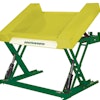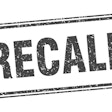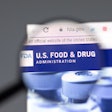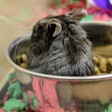Trade in animal products is an important part of the global economy. When they occur, major animal disease occurrences around the globe have a devastating impact on international trade. Many nations of the world have come together with the goal of promoting free trade by agreeing to only implement trade restrictions on animal products that are necessary to protect the health of their animal populations and public health.
The World Organization for Animal Health's (or OIE) Terrestrial Animal Health Code includes guidelines for scientifically-based trade restrictions for a number of significant animal diseases. While the guidelines are not binding on member nations, it is generally recognized that imposing stricter import restrictions should be scientifically justified on the basis of a risk assessment.
In the United States, the US Department of Agriculture (USDA) Animal and Plant Health Inspection Service (APHIS) work to control and eradicate major domestic animal diseases. APHIS also works to prevent the introduction of diseases foreign to the United States. In the event that a foreign animal disease breaches US borders, APHIS takes action to maintain the health of domestic animal populations and minimize the negative impact on international trade.
Impact on trade
Within the past few years, the United States has experienced some major disease occurrences including exotic Newcastle disease (END), highly-pathogenic avian influenza (HPAI), low-pathogenic avian influenza (LPAI), bovine spongiform encephalopathy (BSE) and vesicular stomatitis (VSV). With the exception of VSV, all of these disease outbreaks have had a major impact on trade. The confirmation of two cases of BSE in the United States (one imported, one native) has had major trade repercussions, not only on ruminant products, but also on all processed animal protein products.
Citing public health concerns and the "unknown" aspects of BSE, several countries have banned the importation of all ruminant products, including those recognized by the OIE as being essentially BSE risk-free (e.g., milk and dairy products, protein-free tallow, hides, hide-derived collagen and gelatin). Some countries have also banned processed animal protein products from all species, not just ruminants. Other trading partners have agreed to "open" the market, but have imposed entry or certification requirements that are not realistic or scientifically justified.
APHIS actions
APHIS currently has trading partner ban information on the APHIS website for BSE and VSV. The BSE trade ban site is updated as needed. Although the United States has detected a single indigenous case of BSE, we believe that our extensive BSE surveillance clearly shows that the incidence of BSE in the United States is extremely low and our BSE safeguards are sufficient to prevent entry or spread of the disease and to protect public health.
Although VSV continues to be a problem in our Western and Southwestern states (seven affected to date), APHIS provides weekly reports on the status of the outbreak to the OIE and is otherwise transparent with our trading partners. Since the OIE Terrestrial Animal Health Code chapter on avian influenza was revised in recent months, the United States has reported one incident of low-pathogenic notifiable avian influenza (LPNAI).
APHIS has also provided scientific data, where needed, to show that certain products do not pose a risk for disease transmission. More specifically, APHIS has engaged in technical visits with other governments and hosted teams of foreign officials in direct efforts to regain market access and get remaining restrictions lifted.
Progress with trading partners
EU:
Regulation (EC) 1774, 2002, as amended, governing animal byproducts not intended for human consumption was implemented for trading partners. All petfood producers wishing to export to the EU must be inspected and approved by APHIS as meeting the requirements of this regulation. All suppliers of animal origin ingredients must also be approved. Only products or ingredients defined as "Category 3" materials are eligible for export to the EU. During the implementation phase, the EU gave the United States a derogation that allowed facilities required to be dedicated Category 3 facilities to also handle Category 1 or 2 materials, provided an approved separation protocol was in place. This derogation was set to expire on October 31, 2005, after which time all affected facilities would be required to be dedicated. As a result of negotiations, the EU has agreed to allow the facilities required to be dedicated to either be completely dedicated or to have dedicated equipment and lines. This compromise will enable many facilities to remain approved to export to the EU.
Facilities producing the following products must either be totally dedicated to Category 3 materials or must use dedicated lines and equipment by October 31, 2005: Processed animal protein (rendered protein); gel bone; blood products for use as feed; rendered fats; hydrolyzed protein; dicalcium and tricalcium phosphate; and inedible egg products. While petfood facilities will not be required to be dedicated Category 3 facilities, or to have dedicated lines and equipment (i.e., they may continue to use separation protocols that include flushing or clean-out processes), these facilities could be indirectly impacted due to potential loss of suppliers.
Canada:
Under current BSE restrictions in Canada, petfood without ingredients from animals in the sub-family Bovinae (cattle, bison or buffalo) is enterable with just an invoice and a label showing the ingredients or, in lieu of a label, a manufacturer letter listing ingredients. Petfood with Bovinae ingredients is enterable with either VS certification or an importer's declaration that the ingredients were derived from animals from which SRMs were removed, or originated in or were legally imported from Argentina, Australia, Brazil, Canada, Chile, New Zealand or Uruguay. Petfood with protein-free tallow (maximum level of insoluble impurities of 0.15% insoluble impurities) is enterable, as are pet chews without SRMs.
Mexico:
Mexico currently has restrictions on the importation of bovine products from the United States due to BSE. Petfood is allowed entry with low-risk bovine ingredients (dairy, hides, protein-free tallow and hide-derived collagen and gelatin). Petfood is also allowed entry with ruminant ingredients from BSE-free countries. Mexico does allow ruminant meat from the US or Canada to be included in petfood, provided APHIS will certify that these ingredients come from a slaughter facility and from animals less than 30 months of age who were slaughtered in an approved manner.
Rendered meals included as ingredients in petfood must come from plants approved by Mexico. This requirement applies to rendered ingredients from all countries, including those recognized as BSE-free. APHIS currently inspects US rendering facilities wishing to be approved for export to Mexico (or to supply rendered ingredients to petfood producers) and maintains a list of approved facilities. Spray-dried facilities, digest manufacturers and fish meal facilities are exempt from inspection and approval. To be approved, a rendering facility must be dedicated (i.e., must not handle, store or process any ruminant materials).
Taiwan:
Taiwan has lifted their ban on poultry and poultry products from Texas due to HPAI. With the occurrence of an outbreak of LPNAI in ducks in the state of New York, however, Taiwan has imposed restrictions on New York. This ban extends to cooked poultry and includes dry petfood containing poultry. Poultry products that are manufactured in or that transit through the state of New York are ineligible for export to Taiwan. Taiwan's BSE ban includes all petfoodexcept petfood with no animal origin ingredients; petfood with dairy (milk) and fish protein only; and petfood (ruminant-free) produced at plants inspected and approved by Taiwan. To be an approved petfood producer for Taiwan, a facility must be inspected by officials from Taiwan. The facility must be dedicated. Industry has been arranging these inspections, which must be funded by individual plants. APHIS maintains a list of facilities inspected and approved to export petfood to Taiwan.
Korea:
Although Korea's ban on the entire United States due to HPAI has been lifted, they are currently banning poultry products from the state of New York due to the LPNAI incident reported in June 2005. Cooked or heat-treated products (including petfood) are allowed entry with certification of heat treatment. APHIS is currently in negotiations with the government of Korea to get this remaining AI restriction lifted.
Korea's ban on US products due to BSE includes many non-ruminant products. Korea's current BSE ban includes all ruminant products, regardless of species. APHIS has successfully negotiated the entry of petfood containing otherwise prohibited non-ruminant ingredients. The certification requirements for petfood are posted on the APHIS website (IREGS; see box).
China:
China's longstanding ban on poultry and poultry products from the states of Connecticut and Rhode Island remains in effect. In June 2005, China also banned poultry products from the state of New York due to the incident of LPNAI. China's BSE ban includes all bovine products and regardless of species, MBM, meat meal, dried plasma and other blood products, hydrolyzed protein, hoof meal, horn meal, poultry offal meal, feather meal, greaves, fish meal, dicalcium phosphate and any mixtures of these products. China's initial BSE ban only allowed the entry of petfood with no bovine, porcine or poultry ingredients.
In November 2004, APHIS engaged officials from the government of China in bi-lateral negotiations. During this meeting, protocols for non-ruminant feed (including petfood) and non-ruminant tallow were discussed. Based on the agreement of the meeting, APHIS provided a draft certificate and list of approved labs to China. China finally agreed to audit the US system in lieu of inspecting every potential exporting facility. This audit was conducted in June 2005. Although the audit results were favorable, and China and the United States have agreed on certification requirements, additional roadblocks continue to prevent US exporters from shipping non-ruminant products to China. APHIS is continuing to negotiate with China to resolve the remaining issues.
Thailand:
Thailand's BSE ban includes all ruminants and ruminant products, except those recognized by the OIE as essentially risk-free. These exemptions apply to direct exports of these products only. Thailand has advised APHIS that petfood must be free of all ruminant materials since they intend to test imports for the presence of ruminant DNA.
Indonesia:
APHIS was able to successfully negotiate a protocol with Indonesia that allowed US-origin ruminant MBM to be imported into Indonesia. Following the announcement of our first indigenous case of BSE, however, Indonesia once again banned these products. Negotiations on petfood, which were nearly complete, were also set back by this BSE case. APHIS is currently attempting to re-open petfood negotiations with Indonesia. One positive result is that Indonesia has agreed to continue to allow the importation of petfood with ruminant ingredients.
Efforts continue
APHIS continues efforts to regain markets lost due to the cases of BSE diagnosed in the United States. To regain the confidence of US consumers and our trading partners, the USDA launched an extensive BSE surveillance program in June 2004. As of August 31, 2005, 452,760 cattle had been tested. Of these, three test results were inconclusive, with only one of those being confirmed as positive for BSE. Most of our testing has been done on the high-risk adult cattle population. Based on an estimated adult cattle population of 45 million with the high-risk population estimated at 455,500, testing 268,500 high-risk cattle would allow detection of BSE at a rate of 1 case in 10 million adult cattle with a 99% confidence level. The USDA has exceeded this numerical goal by over 184,260 (approximately 69%). Our BSE surveillance results clearly indicate that the incidence of BSE in the United States is extremely low.
To at least partially restore lost markets, the USDA has agreed to certain restrictions (e.g., exporting beef from animals less than 30 months of age). APHIS also continues efforts to get restrictions due to Newcastle disease, LPAI and HPAI lifted. APHIS is using the OIE's new guidelines on AIwhich clearly indicate that only limited action is warranted for notifiable LPAI strains (H5 and H7 subtypes) and no action is warranted for all other types of LPAIto support our efforts to have current AI trade bans lifted and to prevent similar future actions by our trading partners. We are also assisting efforts by exporters and industry groups to develop new markets.
The USDA, APHIS, Veterinary Services (VS), National Center for Import and Export (NCIE) Animal Products Exports Staff can be reached at Tel: +1.301.734.3278, Fax: +1.301.734.0571. For more information online, visit http://www.aphis.usda.gov.


















